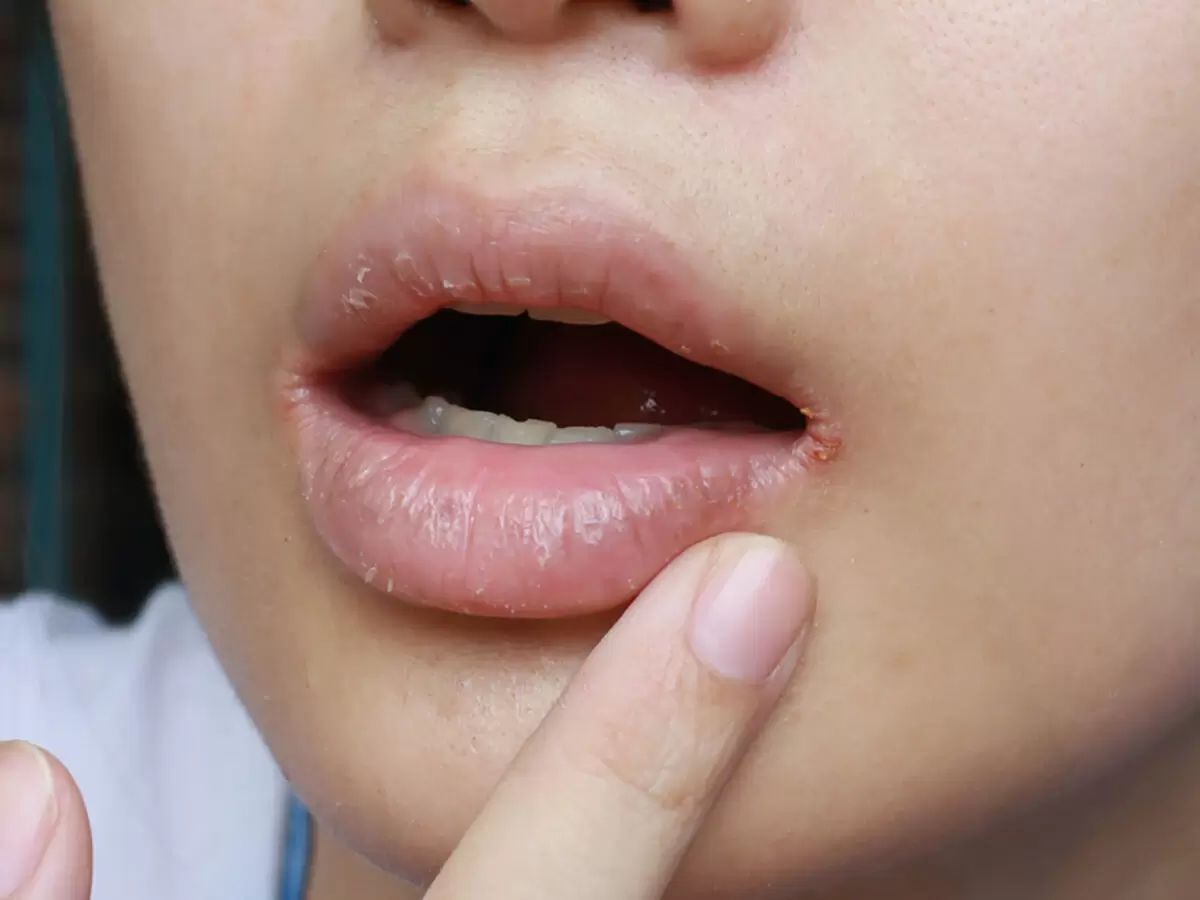Blog
Dental hygiene tips for healthy teeth & gums

Common Reasons Your Lip Corners Are Cracking
Cracked lip corners, or angular cheilitis, can be uncomfortable and ugly. Understanding the common causes of this phenomenon is critical for successful prevention and treatment. This blog will look at the numerous factors that cause cracked lip corners and how to treat this common dental condition.
A Few Reasons
- Fungal Infections (Angular Cheilitis): Angular cheilitis is commonly caused by Candida yeast overgrowth in the mouth’s warm, moist areas.
Symptoms: In addition to cracking, you may experience redness, irritation, and burning.
- Bacterial Infections: Cracks in the corners of the lips can harbor germs and cause secondary infections.
Symptoms: Bacterial infections can exacerbate discomfort by creating increased redness and swelling.
- Nutrient Deficiencies: Lack of B vitamins, iron, and zinc can lead to cracked lip corners.
Nutrient Role: These nutrients are essential for keeping the skin and mucous membranes healthy.
- Moisture or Dryness: Excessive drooling, lip licking, or prolonged contact with moisture can cause cracked corners.
Dry Weather Impact: Conversely, dry weather or insufficient hydration can cause dry, cracked lips.
- Ill-fitting dentures or braces can cause friction and irritation at the mouth’s corners.
Constant Movement: Continuous movement while speaking or eating might aggravate existing cracks.
- Allergic Reactions: Lip products, toothpaste, and other oral care items might cause contact dermatitis.
Inflammatory Response: Allergic inflammation may contribute to the formation of cracks.
- Habits such as thumb-sucking: In children, prolonged thumb-sucking or dummy use can lead to persistent wetness and damaged lip corners.
Its effect: Thumb-sucking can also cause strain on the palate, affecting oral tissues.
Addressing cracked lip corners
- Use antifungal or antibacterial creams for topical treatment:
Antifungal or antibacterial lotions can help treat angular cheilitis by targeting the underlying illness.
Prescription drugs: For severe situations, prescription-strength drugs may be required.
- Addressing nutrient deficiencies:
Balanced Diet: To correct nutrient deficiencies, follow a well-balanced diet rich in B vitamins, iron, and zinc.
Supplements if Required: Consult a healthcare provider about the need for supplements.
- Proper Hydration and Moisturising:
Hydrate well: Drink plenty of water, especially during dry weather.
Lip Balm: Use a hypoallergenic lip balm to moisturize your lips and prevent them from drying.
- Denture and brace adjustments:
Consult a dentist: See a dentist for adjustments if ill-fitting dentures or braces contribute to cracking.
Regular Check-Ups: Regular dental check-ups guarantee that oral appliances are properly fitted.
- Identifying and avoiding allergens:
Patch Testing: To discover the allergens that cause contact dermatitis, undergo patch testing.
Switching Products: Replace oral care and lip cosmetics with hypoallergenic options.
- Breaking Habits:
Encourage children to stop thumb-sucking with positive reinforcement.
Orthodontic Consultation: If necessary, see an orthodontist to treat the effects of habits on oral tissues.
Preventive Measures
- Maintain Oral Hygiene: Regular brushing and flossing help avoid bacterial overgrowth and illnesses. Routine dental check-ups can help discover and manage problems early on.
- Promoting Healthy Mouth Habits: Teach toddlers good mouth hygiene and prevent excessive thumb-sucking. Regular pediatric dental appointments increase awareness and aid in early intervention.
- Proactive Lip Care: To prevent cracking, avoid excessive drooling and lip licking. Moisturise as needed: Apply lip balm to hydrate lips, especially during dry weather.
- Balanced Nutrient Intake: Maintain a nutrient-rich diet for optimal skin health. Limit your sugary foods and beverages to lower the risk of Candida overgrowth.
Conclusion
Infections, nutritional deficits, habits, or allergies might cause cracked lip corners. Identifying the underlying cause is critical for successful treatment and prevention. Taking preventative actions and visiting a dentist in Crosby, TX, can help you treat fungal or bacterial infections.
Correcting dental equipment or adopting healthy oral habits helps maintain the delicate skin at the corners of the lips. Regular dental check-ups and an emphasis on preventive care improve oral health, resulting in comfortable, crack-free lip corners.
